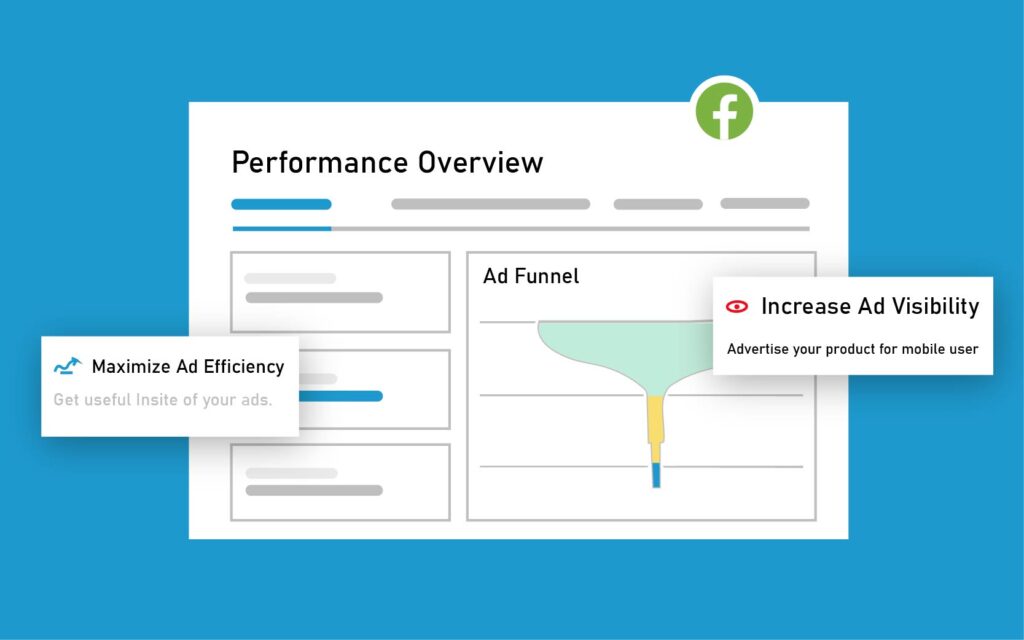
LinkedIn Client Hunting Course in Mohakhali
LinkedIn is more than just a platform for networking; it’s a powerful tool for finding

If you want my team to manage your good marketing for you, click here
There’s an increasing demand for effective online marketing strategies, and a Facebook Marketing Course in Pallabi is designed to equip participants with imperative skills. This course caters to individuals and businesses aiming to harness the power of Facebook for brand promotion and audience engagement. By the end of the program, they will have a solid understanding of Facebook advertising, content creation, and audience targeting, enabling them to develop impactful campaigns that drive results. This is an opportunity for those serious about enhancing their marketing techniques in today’s digital landscape.
To maximize the effectiveness of Facebook marketing, she identifies various strategies that marketers can implement. These strategies ensure they target their audiences effectively while achieving their goals. Understanding these approaches is vital for anyone looking to enhance their marketing efforts. The key types include:
Knowing these strategies can help marketers choose the best approach for their objectives.
| Type of Strategy | Description |
| Content Marketing | Creating valuable and engaging content to attract and retain a target audience. |
| Influencer Collaborations | Partnering with influencers to reach a broader or more engaged audience. |
| Community Building | Creating and nurturing a space for audience interaction and loyalty. |
| Retargeting Campaigns | Advertising to users who have previously engaged with the brand. |
| Promotions and Contests | Encouraging audience participation through giveaways or special offers. |
There’s a significant focus on organic marketing strategies that allow businesses to engage with their audience without direct monetary investment. These strategies often leverage high-quality content, community involvement, and consistent interaction. Marketers can create compelling posts, participate in relevant groups, and utilize Facebook Live to boost visibility and engagement organically. The essence of organic marketing lies in building genuine relationships and trust with the audience.
Strategies in paid advertising involve financial investment to reach larger and more defined audiences. These methods offer targeted promotions that can yield significant returns through various ad formats like carousel ads, video ads, and dynamic product ads. Marketers often utilize Facebook’s advanced targeting features to reach specific demographics, interests, and behaviors. This increases the chances of conversion and helps in achieving marketing goals.
Facebook provides robust advertising tools that enable she marketers to create impactful paid campaigns tailored to their audiences. From establishing well-defined objectives to utilizing A/B testing, these advertisers can refine their approach based on real-time performance metrics. Investment in paid advertising is a powerful way to gain visibility, generate leads, and ultimately increase conversions without relying solely on organic reach.

Some key elements contribute to effective Facebook marketing strategies. Marketers should focus on these factors:
Knowing these vital elements can lead to improved marketing outcomes and audience interaction.
Audience understanding is fundamental for any marketing initiative. Marketers must identify who their target audience is, which includes demographic factors like age, location, interests, and online behavior. This analysis allows companies to tailor their content to meet the specific needs and preferences of their audience, ensuring higher engagement and conversion rates.
To maximize the effectiveness of Facebook marketing, content must resonate with the target audience. Quality visuals, compelling captions, and interactive elements like polls or questions can significantly enhance user engagement. Marketers should also ensure that their content is optimized for search functionality, utilizing relevant keywords and hashtags to widen their reach.
The type of content shared plays a significant role in audience engagement. She must consider varying formats, such as videos, infographics, or live sessions, as these can attract diverse audience segments. Additionally, monitoring audience reactions and leveraging insights can guide future content strategies. He or she must also stay attuned to the latest trends and user preferences to adapt their content accordingly for optimal impact.
Even the most novice marketers can navigate the intricate world of Facebook marketing with a well-structured campaign guide. Following these steps helps ensure a smoother experience and maximizes one’s advertising potential. Below is a breakdown of the crucial components integral to launching a successful Facebook marketing campaign.
Campaign Components
| Step | Description |
|---|---|
| 1 | Define the target audience. |
| 2 | Create compelling ad content. |
| 3 | Set budget and scheduling. |
| 4 | Monitor and optimize performance. |
The first step in a Facebook marketing campaign is establishing a business page that resonates well with the target audience. She must ensure that the page accurately reflects the brand’s identity, featuring high-quality images, a clear description, and engaging content. It’s also crucial to optimize the page’s settings, integrate call-to-action buttons, and encourage customer interaction to foster a robust online presence.
Setting up and managing ads on Facebook requires a strategic approach to reach the desired demographic effectively. To do this, they should begin by selecting the appropriate ad objective, whether it is to increase brand awareness, drive traffic to a website, or generate leads. It is important for them to keep experimenting with ad formats, targeting options, and budgets to discover what works best for their campaigns.
Understanding the dynamics of Facebook ads’ performance analytics enables marketers to refine their campaigns continuously. They can track metrics such as reach, engagement, and conversion rates, which provide insight into the effectiveness of their strategies. By leveraging A/B testing for ad variations, they can assess which creatives garner more attention, allowing for informed adjustments that could lead to improved results over time.
Now, effective Facebook marketing requires understanding key strategies for success. Marketers should focus on:
Perceiving these elements can significantly enhance marketing efforts on the platform.
With a tailored approach, marketers can increase both engagement and reach on Facebook. Posts that resonate with the audience lead to more shares and interactions, amplifying overall visibility. Moreover, utilizing media such as images and videos tends to capture more attention than text alone.
Little adjustments can lead to substantial improvements in performance metrics on Facebook. Analyzing insights such as engagement rates, click-through rates, and audience demographics allows marketers to refine their strategies effectively.
Engagement is a vital aspect of Facebook marketing performance. By implementing tools such as Facebook Insights, marketers can gain a clearer understanding of their audience’s preferences and behaviors. This knowledge allows them to adjust their content strategy, ultimately leading to higher engagement rates. By testing different types of posts and observing audience responses, they can identify what resonates most, driving continuous improvement in performance over time.
All businesses considering Facebook marketing should weigh its benefits and drawbacks carefully. To facilitate this, the following table outlines the pros and cons of utilizing Facebook as a marketing platform:
| Pros | Cons |
|---|---|
| Wide audience reach | Ad fatigue among users |
| Targeted advertising options | Constant algorithm changes |
| Cost-effective marketing | Increased competition |
| Engagement opportunities | Need for continuous content creation |
| Insights and analytics | Limited organic reach |
If he or she utilizes Facebook for marketing, they can reach a vast customer base and connect with users on a personal level. This platform offers advanced targeting options, allowing businesses to tailor their ads to specific demographics, interests, and behaviors. Additionally, Facebook’s analytics tools provide valuable insights into customer behavior, enabling businesses to refine their strategies and improve engagement.
To navigate the landscape of Facebook marketing effectively, one must also acknowledge its challenges. Ad fatigue is a common issue, where users become desensitized to repetitive advertisements, leading to lower engagement rates. Moreover, constant changes in Facebook’s algorithm can impact organic reach and performance of campaigns, necessitating ongoing adjustments and adaptation from marketers.
Pros of Facebook marketing include the ability to engage with a diverse audience and measure performance through robust analytics. However, businesses may face challenges such as ad fatigue and intense competition, which can make it difficult to maintain audience interest and achieve desired outcomes. Adapting to the evolving nature of Facebook’s algorithms and ensuring consistent, high-quality content is imperative for long-term success in this digital space.
Conclusively, the Facebook Marketing Course in Pallabi equips participants with vital skills and knowledge necessary for effective digital marketing. They gain insights into targeted advertising, audience engagement, and analytics, enabling them to enhance their marketing strategies. By mastering these techniques, he or she will be well-prepared to navigate the competitive landscape of social media marketing. Ultimately, this course provides a solid foundation for anyone looking to leverage Facebook as a powerful marketing tool for their business or brand.
It is really a win-win situation 😲 for you to join the “Digital Wit Academy” Facebook group and gain the most updated information about different digital marketing strategies.

Kamrul Hassan is the founder and CEO of Digital Wit Academy. As you know, Digital Wit Academy is a fast-growing Bangla e-learning platform that provides quality knowledge and support to students. Kamrul Hassan is a government-certified Professional Digital Marketing Expert and a trainer/mentor in the Youth and sports ministry projects of the BD government. His Team Digital Wit Academy consists of well-educated and highly motivated core team members who are very friendly. They believe in quality support to make the students’ careers more successful. Support is the best part of the Digital Wit Academy courses.

Stop wasting money and unlock the hidden potential of your advertising skills with Digital Wit Academy.

LinkedIn is more than just a platform for networking; it’s a powerful tool for finding

Most professionals are aware of LinkedIn’s potential as a powerful tool for networking and client

Course participants will discover the art of leveraging LinkedIn client hunting to attract effectively. In

With the rise of digital networking, mastering LinkedIn for client acquisition has never been more

There’s an exciting opportunity for professionals seeking to enhance their networking skills through my LinkedIn
Hey, I’m Kamrul Hassan, the mastermind of Digital Wit. I’m confident to grow your brand. My only question is, will you grab the opportunity?